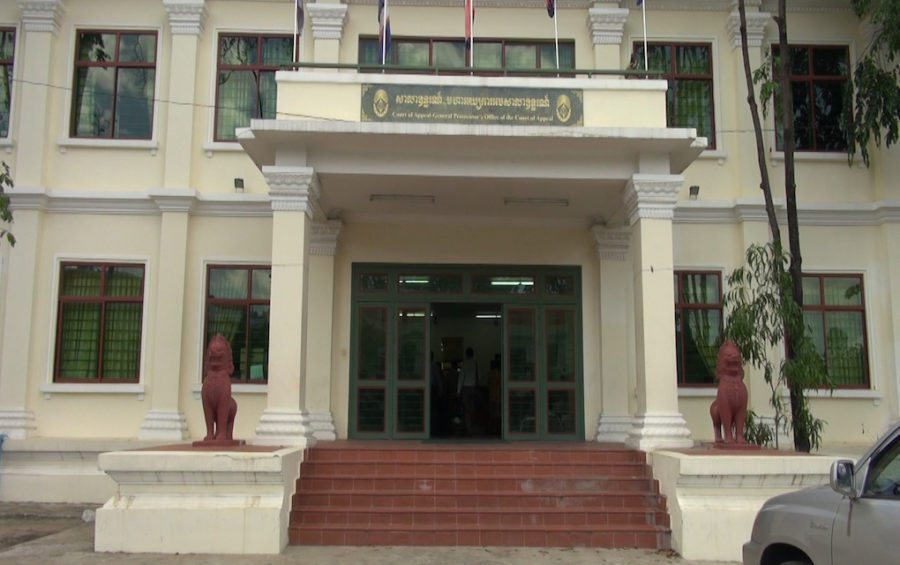The Cambodian Center for Human Rights (CCHR) has called on judges to “inform and fully explain” to all defendants both their rights during trial and the charges against them, citing a 16-month review of proceedings at the Phnom Penh Appeal Court.
The local human rights organization monitored 273 cases at the Appeal Court from January 2019 to April 30, noting some improvements in the upholding of fair trial standards, but also remaining inadequacies in judges’ actions to ensure the right to a fair trial, according to a CCHR newsletter released this week.
The rights group called on judges to promote the “full and free exercise of the accused’s rights” during trials.
While Appeal Court judges informed defendants of the charges against them in 72 percent of observed cases, in more than a quarter of cases, judges did not inform the accused of all their charges, CCHR found.
Defendants were represented by a lawyer in 66 percent of monitored cases, but in 14 percent of cases the accused was not present at trial.
CCHR observed 50 cases over the 16-month monitoring period in which a defendant without legal representation was not fully informed of their right to legal representation or to defend themselves in court.
Judges only informed and explained to defendants their right to remain silent and not self-incriminate in about 1 in 10 observed cases. Judges “failed to even mention this right” in more than half of the monitored cases, according to CCHR.
The rights group concluded that “the accused’s rights have not been fully respected, and such practice did not conform with national and international standards on fair trial rights.”
Hun Seang Hak, CCHR’s Fair Trial Rights Project coordinator, told VOD that judges do not provide justice when they do not fulfill their duties in line with the law.
“In some cases, [the accused] don’t know about their rights, so this means that [the trial] could be an injustice against them or they don’t get complete justice,” Seang Hak said.
However, after CCHR met with court officials in August 2019 to discuss the group’s findings on fair trial rights practices at the court, CCHR said judges increased how often they explained defendants’ rights to legal representation and to remain silent.
In its 2019 Fair Trial Rights Annual Report, CCHR noted a decline in cases where judges informed defendants of all the charges against them, as compared to the previous monitoring period from 2016 to 2017.
Justice Ministry spokesman Chin Malin told VOD this week that the ministry is training judges to improve their capacity and also creating a system to monitor officials’ practices.
“All judges graduated from schools where they were properly trained,” Malin said. “Besides, there is also training while they are working.”
The ministry has previously said it is working to reform the justice system, including by speeding up court proceedings in order to reduce the number of people held in pretrial detention.
Soeng Senkaruna, spokesman for rights group Adhoc, said he hopes the Justice Ministry accepts CCHR’s findings and uses them to ensure judges are adequately informing defendants in the future.
“They do not comply with the legal procedure properly, and so we find the same [results],” he said. “If there is a change from what has not been properly implemented to an implementation in line with a proper legal procedure, then the [CCHR] report will not find the same problem again.”
(Translated and edited from the original article on VOD Khmer)













